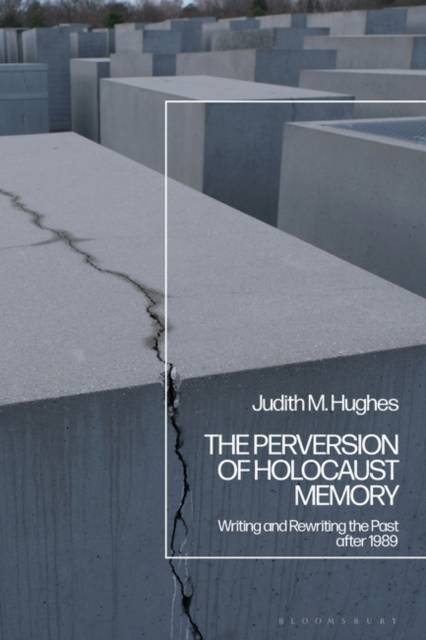
Bedankt voor het vertrouwen het afgelopen jaar! Om jou te bedanken bieden we GRATIS verzending (in België) aan op alles gedurende de hele maand januari.
- Afhalen na 1 uur in een winkel met voorraad
- In januari gratis thuislevering in België
- Ruim aanbod met 7 miljoen producten
Bedankt voor het vertrouwen het afgelopen jaar! Om jou te bedanken bieden we GRATIS verzending (in België) aan op alles gedurende de hele maand januari.
- Afhalen na 1 uur in een winkel met voorraad
- In januari gratis thuislevering in België
- Ruim aanbod met 7 miljoen producten
Zoeken
The Perversion of Holocaust Memory
Writing and Rewriting the Past after 1989
Judith M Hughes
Hardcover | Engels
€ 203,95
+ 407 punten
Uitvoering
Omschrijving
In the early years of the 21st century it appeared that the memory of the Holocaust was secure in Western Europe; that, in order to gain entry into the European Union, the countries of Eastern Europe would have to acknowledge their compatriots' complicity in genocide. Fifteen year later, the landscape looks starkly different. Shedding fresh light on these developments, The Perversion of Holocaust Memoryexplores the politicization and distortion of Holocaust remembrance since 1989.
This innovative book opens with an analysis of events across Europe which buttressed confidence in the stability of Holocaust memory and brought home the full extent of nations' participation in the Final Solution. And yet, as Judith M. Hughes reveals in later chapters, mainstream accountability began to crumble as the 21st century progressed: German and Jewish suffering was equated; anti-Semitic rhetoric re-entered contemporary discourse; populist leaders side-stepped inconvenient facts; and, more recently with the revival of ethno-nationalism, Holocaust remembrance has been caught in the backlash of the European refugee crisis.
The four countries analyzed here - France, Germany, Hungary, and Poland - could all claim to be victims of Nazi Germany, the Allies or the Communist Soviet Union but they were also all perpetrators. Ultimately, it is this complex legacy which Hughes adroitly untangles in her sophisticated study of Holocaust memory in modern Europe.
This innovative book opens with an analysis of events across Europe which buttressed confidence in the stability of Holocaust memory and brought home the full extent of nations' participation in the Final Solution. And yet, as Judith M. Hughes reveals in later chapters, mainstream accountability began to crumble as the 21st century progressed: German and Jewish suffering was equated; anti-Semitic rhetoric re-entered contemporary discourse; populist leaders side-stepped inconvenient facts; and, more recently with the revival of ethno-nationalism, Holocaust remembrance has been caught in the backlash of the European refugee crisis.
The four countries analyzed here - France, Germany, Hungary, and Poland - could all claim to be victims of Nazi Germany, the Allies or the Communist Soviet Union but they were also all perpetrators. Ultimately, it is this complex legacy which Hughes adroitly untangles in her sophisticated study of Holocaust memory in modern Europe.
Specificaties
Betrokkenen
- Auteur(s):
- Uitgeverij:
Inhoud
- Aantal bladzijden:
- 160
- Taal:
- Engels
Eigenschappen
- Productcode (EAN):
- 9781350281875
- Verschijningsdatum:
- 24/02/2022
- Uitvoering:
- Hardcover
- Formaat:
- Genaaid
- Afmetingen:
- 156 mm x 234 mm
- Gewicht:
- 399 g

Alleen bij Standaard Boekhandel
+ 407 punten op je klantenkaart van Standaard Boekhandel
Beoordelingen
We publiceren alleen reviews die voldoen aan de voorwaarden voor reviews. Bekijk onze voorwaarden voor reviews.









